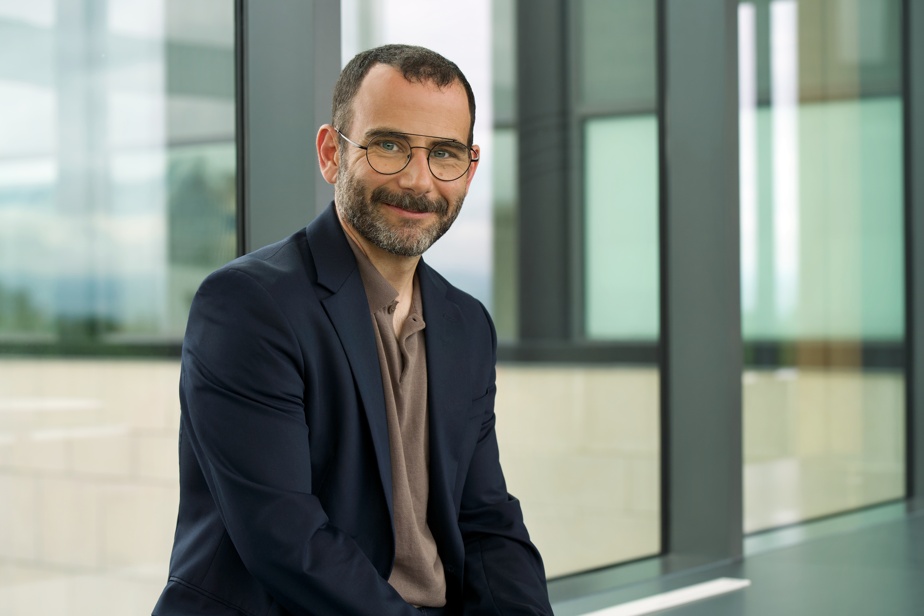At a time when Catholic practice is in free fall, young Quebecers without religion turn mainly to spirituality, reveals a study conducted by Laval University. If they perceive religious practice as “dogmatic and old-fashioned”, spirituality represents for them a window towards “personal fulfillment”.
Posted May 22
Two categories
Young people who say they do not belong to any religion are divided into two main categories: the “unaffiliated” and the “disaffiliated”. This is the observation made by Jean-Philippe Perreault, holder of the “Youth and Religions” Chair at Laval University, after having interviewed some forty young people aged 20 to 32 “mostly of French-Canadian ancestry “. The unaffiliated have simply never been part of a religion, while the unaffiliated have quietly become disinterested in it.

PHOTO PROVIDED BY JEAN-PHILIPPE PERREAULT
Jean-Philippe Perreault, holder of the “Youth and Religions” Chair at Laval University
Not enough commonalities
The typical participant in this study is not at all a “polarized atheist militant”, points out Jean-Philippe Perreault. “It is a young person who is 22 or 23 years old, having known a little religious practice, who is probably baptized, he explains. But if he sees a question asking him: “Do you belong to Catholicism?”, he answers “No” for the sake of authenticity. He refuses because he feels he does not share enough elements of belief with Catholics. »
Why spirituality?
“That does not make them people who refuse religion as a whole,” argues Jean-Philippe Perreault, who is also a professor of religious studies. According to him, young people need progress and progress in their lives. “Spirituality is based on the question of choice and on an individualism that is not narcissistic,” he explains. It’s about self-care, everyone’s freedom, personal fulfillment. There’s a lot of “personal development” talk in there. It’s even a little therapeutic. »
We want to realize ourselves, we are not at all in “doing well in this life to obtain eternal life”. In the past, it was salvation, and today, it is happiness. The spiritual life exists in order to live better in one’s daily life.
Jean-Philippe Perreault, holder of the “Youth and Religions” Chair at Laval University
How does it manifest?
The spiritual universe is “deliberately vague”, according to the researcher. In fact, the way to live one’s spirituality can depend on each person. For some, it is activities such as meditation or yoga that can cultivate it. For others, it is rather to believe in paranormal phenomena, for example. “It’s convenient, the idea that a phenomenon comes under spirituality. It is an environment that is wary of ready-made definitions, underlines Jean-Philippe Perreault. In spirituality, what counts is oneself. We need progression and progress. On the contrary, if it was too defined, if it depended too much on an authority, we would be wary of it because there is a fear of brainwashing. »
Baptism
In 2001, nearly 75% of children born in the province were baptized. This is much more than what professor at the School of Sociological and Anthropological Studies at the University of Ottawa Martin Meunier would have estimated before knowing this data. “I calculated this figure several times, I was so skeptical,” he says.
“Even though people have distanced themselves from the Church and are critical of the institution, baptism was still part of the national identity. Some simply said to themselves: ‘I have been baptized, so I will also baptize my children’”, specifies Jean-Philippe Perreault. Today, approximately one out of three Quebec babies is baptized, adds Martin Meunier.
Other striking data
In 1965, during the Quiet Revolution, the percentage of the Quebec population who participated in Sunday masses each week was 80%. Nearly 60 years later, this rate is around 10%. “It gives a good portrait of the situation statistically,” comments Martin Meunier. In 1990, eight children out of ten finished their course of catechesis by making their confirmation. Now, only one child in ten makes it to the final stage. And among young adults, even though 18-35 year olds have always been the age group least likely to be religious, the proportion of “no religion” continues to grow.
“At the next census, we will see a significant decline in Catholic membership. Why ? The theme of pedophile priests continues, and to this are added the Aboriginal burials, which discredits Catholicism with Quebecers and Canadians,” concludes Mr. Meunier.
Learn more
-
- 50%
- Proportion of Quebecers who still go to mass at least once a year, mostly for Christmas or Easter.
Source: University of Ottawa

